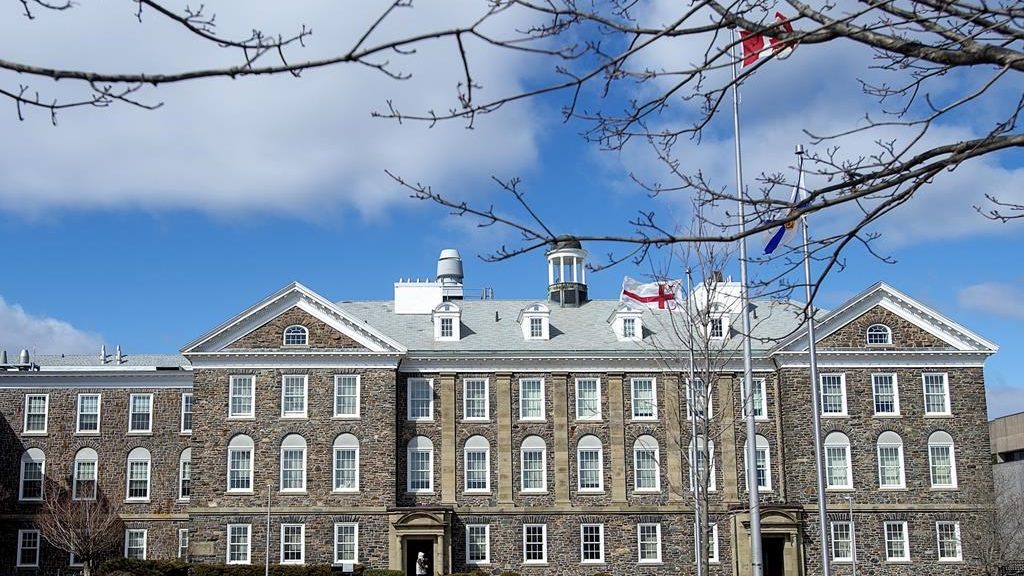Conservative cross-country media blitz touts proposed EU free trade deal
Posted Apr 27, 2012 03:34:54 PM.
This article is more than 5 years old.
OTTAWA – Conservative cabinet ministers and MPs were on another coast-to-coast media blitz Friday — this time to promote a proposed free trade deal with the European Union that hasn’t even been signed.
Though the contents of the deal aren’t public, that hasn’t stopped the Harper government from promising it will create thousands of jobs and add billions to the Canadian economy.
But critics say that until the Conservatives disclose what’s in the agreement, Canadians shouldn’t trust the numbers nor a dog-and-pony show designed to put a positive spin on a bad week for the government.
The national tour was conceived to showcase the positive effects of the agreement for all regions and industries in the country, said International Trade Minister Ed Fast.
Eighteen ministers and MPs were everywhere from a P.E.I potato plant to a Vancouver cannery, their efforts backed up by a flurry of press releases from industry groups also touting trade.
The government’s claims on job creation and investment come from studies done before negotiations began as well as recent regional analyses, Fast said in an interview.
“We have a good idea of where our interests lie, we have a good idea of where our offensive interests lie in negotiating an agreement,” Fast said.
“We’re very optimistic that this will be a high-level, highly ambitious agreement that is going to provide significant benefit to industries right across the country.”
Fast said he’s committed to concluding negotiations this year, but earlier this week the European Union signalled that could be overly optimistic.
The Czech Republic, Hungary and Bulgaria are angry that their citizens are now required to have visas to come to Canada and could refuse to ratify any agreement.
Fast sloughed off those concerns.
“We have kept those issues on a completely separate track,” he said.
Fanning out ministers and MPs to pitch a wishful trade agreement was nothing more than an attempt to change the channel after a testy week in the Commons for the Conservatives, the Opposition said.
The government found itself confronting the high-spending hijinks of a cabinet minister, while stick-handling a private member’s motion that’s sparked a debate on abortion and fending off surprise questions on the future of the mission in Afghanistan.
“So instead of having to, you know, deal with us, they want to go out on the land and use taxpayers’ dollars to spread their propaganda and have, as I said, this dog-and-pony show,” said NDP MP Paul Dewar.
“You know, they’re going to try and change the channel but Canadians know that when it comes to accountability, transparency, this government is failing badly.”
The channel change argument is one possible motive for the tour, but there are others, suggested Alex Marland, a professor of political science at Memorial University.
The cross-country junket could be a reflection of lessons learned from the angst created in the days before Canada signed a free trade deal with the United States in the 1980s, Marland said.
“It split people apart and had all sorts of people really worried: ‘Am I going to lose my job?'” said the St. John’s academic.
“When you start talking about people losing their jobs, not only does it hit people hard, that actually goes against what the Harper government is trying to tell people.”
The trade talks — and accompanying sales job — fit right into the Conservatives’ attempt to brand the prime minister as being all about economic growth, Marland said.
The government says the current round of talks with the European Union aspires to create the most wide-ranging trade deal Canada has ever entered.
The Comprehensive Economic and Trade Agreement, or CETA, would encompass not only goods, but investment and services, and provincial and municipal government procurement.
An influential group of Quebec business leaders, trade and pharmacy lobbyists and even a society representing Canadians with mood disorders also expressed their support for the deal Friday.
But several municipalities have expressed concern and have asked to be exempt, arguing that it could run contrary to local procurement policies.
They also argue that if they’re going to be governed by the agreement, they should have been at the bargaining table.
The Council of Canadians says the government shouldn’t just be staging photo ops and speeches but also should engage with Canadians to listen to some of their concerns.
“If the Harper government really wanted to meet with workers, he would have picked a more convenient time than 9 or 10 a.m. on a Friday,” said Ted Woynillowicz in a statement.
“We dare these ministers to come back to the province to actually meet with the public and take tough questions about CETA.”










